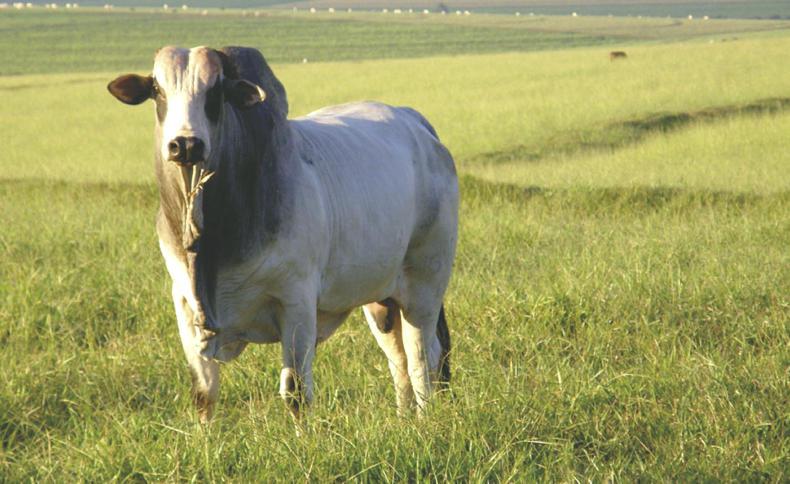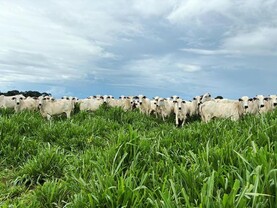The absence of a European beef trade offer to South American countries does not mean it has gone away – it means that the resistance reflected in the letter from 11 countries including Ireland to the European Commission’s DG Trade and DG Agri has caused pause for thought. After all, in May 2016, it was the kick back by member states that blocked the contemplated 78,000t beef offer.
This time round, it looked different. The CETA trade deal with Canada came into effect without much fuss and the conclusion of the political agreement with Japan was heralded a great success for agriculture.
The next deal in line – brewing since 1999 – is that with the Mercosur group of South American countries. Brazil, Argentina, Uruguay and Paraguay are all major exporters of the lowest cost beef produced in the world. Between them, they currently supply almost three quarters of the EU’s imported beef. These South American countries are potentially a lucrative market for EU industrial and pharmaceutical goods and services.
Realistic
However, it is the EU’s beef and ethanol sectors that almost single-handedly have to pay for this, because those exports to the EU are Mercosur’s number one priority.
Listen to comments by ICMSA president John Comer and MEP Sean Kelly in our podcast below:
Since the EU’s Cumulative Impact Assessment on various trade deals and vote by the UK to leave the EU, European Commissioner for Agriculture and Rural Development Phil Hogan has constantly advocated that negotiations on beef access to the EU have to be realistic. What realistic means is now about to be defined.
It is clear that DG Trade is anxious to conclude a Mercosur deal sooner rather than later, including an offer on beef and ethanol. But agricultural interests in Brussels have mobilised.
In a move reminiscent of spring 2016, 11 member states have sent a strongly worded letter to DG Trade and DG Agri expressing their opposition. Others are believed to be waiting in the wings to join once the internal diplomatic formalities have been concluded. That created the very real possibility of a blocking minority of member states again emerging.
Brexit effect
There has been another development since May 2016. The UK was then among the most enthusiastic advocates for a Mercosur deal, with an eye on the financial services the UK could sell to South America.
With the UK now on the countdown to leaving the EU, there is a question over the British vote on this issue. Without the UK, the balance would be seriously tipped in favour of countries that prioritise agricultural interests.
Stall the charge
At the beginning of this week a huge beef quota offer seemed a certainty. However, the mobilisation of member states with strong farming influences have managed to stall the charge.
It is likely that an offer of some sort will still emerge, but there is a growing sense in Brussels as the week progresses that realism was taking over. That process began with lead Mercosur negotiator Sandra Galina’s visit to Copa-Cogeca, the EU farming union’s umbrella body, late last week. European farm reps told her of the vulnerability of the EU beef sector at this time, particularly in light of Brexit. The resistance mounted this week reinforces that message.
Wrong-footed
Last May, DG Trade proposed 78,000t. This was shot down. European Commissioner for Trade Cecilia Malmström was wrong-footed on that occasion, and with member states mobilising in opposition there is a risk of history repeating itself. The Commissioner will be looking to her officials with the thought in mind of not being fooled a second time.
Expect a more modest offer to emerge soon.
Read more
Full coverage: Mercosur
The absence of a European beef trade offer to South American countries does not mean it has gone away – it means that the resistance reflected in the letter from 11 countries including Ireland to the European Commission’s DG Trade and DG Agri has caused pause for thought. After all, in May 2016, it was the kick back by member states that blocked the contemplated 78,000t beef offer.
This time round, it looked different. The CETA trade deal with Canada came into effect without much fuss and the conclusion of the political agreement with Japan was heralded a great success for agriculture.
The next deal in line – brewing since 1999 – is that with the Mercosur group of South American countries. Brazil, Argentina, Uruguay and Paraguay are all major exporters of the lowest cost beef produced in the world. Between them, they currently supply almost three quarters of the EU’s imported beef. These South American countries are potentially a lucrative market for EU industrial and pharmaceutical goods and services.
Realistic
However, it is the EU’s beef and ethanol sectors that almost single-handedly have to pay for this, because those exports to the EU are Mercosur’s number one priority.
Listen to comments by ICMSA president John Comer and MEP Sean Kelly in our podcast below:
Since the EU’s Cumulative Impact Assessment on various trade deals and vote by the UK to leave the EU, European Commissioner for Agriculture and Rural Development Phil Hogan has constantly advocated that negotiations on beef access to the EU have to be realistic. What realistic means is now about to be defined.
It is clear that DG Trade is anxious to conclude a Mercosur deal sooner rather than later, including an offer on beef and ethanol. But agricultural interests in Brussels have mobilised.
In a move reminiscent of spring 2016, 11 member states have sent a strongly worded letter to DG Trade and DG Agri expressing their opposition. Others are believed to be waiting in the wings to join once the internal diplomatic formalities have been concluded. That created the very real possibility of a blocking minority of member states again emerging.
Brexit effect
There has been another development since May 2016. The UK was then among the most enthusiastic advocates for a Mercosur deal, with an eye on the financial services the UK could sell to South America.
With the UK now on the countdown to leaving the EU, there is a question over the British vote on this issue. Without the UK, the balance would be seriously tipped in favour of countries that prioritise agricultural interests.
Stall the charge
At the beginning of this week a huge beef quota offer seemed a certainty. However, the mobilisation of member states with strong farming influences have managed to stall the charge.
It is likely that an offer of some sort will still emerge, but there is a growing sense in Brussels as the week progresses that realism was taking over. That process began with lead Mercosur negotiator Sandra Galina’s visit to Copa-Cogeca, the EU farming union’s umbrella body, late last week. European farm reps told her of the vulnerability of the EU beef sector at this time, particularly in light of Brexit. The resistance mounted this week reinforces that message.
Wrong-footed
Last May, DG Trade proposed 78,000t. This was shot down. European Commissioner for Trade Cecilia Malmström was wrong-footed on that occasion, and with member states mobilising in opposition there is a risk of history repeating itself. The Commissioner will be looking to her officials with the thought in mind of not being fooled a second time.
Expect a more modest offer to emerge soon.
Read more
Full coverage: Mercosur






 This is a subscriber-only article
This is a subscriber-only article










SHARING OPTIONS: